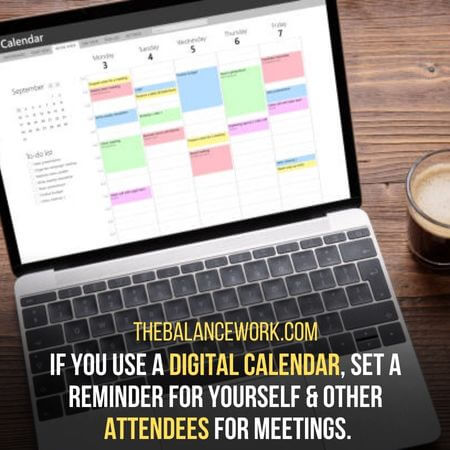You missed that important meeting, and you needed to attend. But you don’t know how to apologize for missing a meeting. So here’s how to do it right.
Meetings are important. Their dynamics are what make or break a company’s productivity.
How To Apologize For Missing A Meeting? 10 Things To Remember
One person not attending a meeting can ruin the entire flow. It can disrupt everything that was to happen.
This is why it’s important to apologize for missing a meeting, even if you have a good reason.
It shows that you understand the importance of meetings. And that you’re sorry for disrupting the flow.
Here are some tips on how to apologize for missing a meeting.
1. Be Sincere:
The first step is to be sincere. Your apology won’t mean anything if you’re not sorry.
Sincerity is key. People can tell when you’re not being genuine. It starts with the words you use.
“I’m sorry for not being able to make it to the meeting. I know it was important.”

This is a sincere apology. It shows that you understand the importance of the meeting. And that you’re truly sorry for not being able to attend.
Sincerity comes from the heart. So if you’re not genuinely sorry, don’t bother apologizing.
Your boss will see right through you. It’ll backfire if you say you’re sorry to avoid getting in trouble.
2. Take Responsibility:
The second step is to take responsibility for your actions. Don’t try to make excuses.
“I’m sorry I missed the meeting. I overslept.” “I know I should have been there. It was my responsibility to be there.”
This is a good apology. This shows that you understand that you made a mistake. And that you’re willing to take responsibility for it.
And when you take responsibility for your actions, people are more likely to forgive you.
Your reason may be valid, but it doesn’t matter. You committed, and you didn’t follow through.
3. Make Amends:
The third step is to make amends. This means you need to do something to make up for the fact that you missed the meeting.
“I’m sorry I missed the meeting. I’ll stay late tonight to ensure the project is on track.”
“I’m sorry I missed the meeting. I’ll do whatever it takes to ensure the project succeeds.”
Or you can say, “I’m sorry I missed the meeting. Certainly, I’ll make sure to be there next time.”
“I know I should have been there, and I’m really sorry that I wasn’t. I’ll make it a priority to be at the next meeting.”
4. Promise To Do Better:
And while you’re at it, try to be more punctual in the future. People who are habitually late need to work on changing their ways.
If you’re usually late for meetings, make a concerted effort to be on time from now on. It’ll show that you’re sincere about making up for your mistake.
It’ll show that you’re sincere about making up for your mistake. And if you missed an important meeting because you were out of town, try to be more available in the future.
This way, your colleagues will know you’re truly sorry for what happened. And you’re taking steps to ensure it doesn’t happen again.
5. Acknowledge The Impact Of Your Actions:
When you apologize, you must acknowledge how your actions impacted others.
For example, if you cancel plans last minute, you might say something like:
“I know I ruined the meeting by not showing up, and I’m sorry about that.”

This shows that you understand the inconvenience or disappointment you caused. And it’ll go a long way in convincing others that you’re truly remorseful.
Some people find it helpful to use the word “because” when acknowledging the impact of their actions. For example, you might say:
“I’m sorry for missing the meeting. Because I know how much this one meant to you.”
Using “because” can help to explain why you’re apologizing. And it often makes the apology more memorable and meaningful.
6. Smart Answer Examples For “Why Were You Late?”
Assuming you have a good reason for being late, here are some ways to respond to your boss:
– “My car was delayed due to traffic for half an hour.”
– “I’m so sorry I’m late. I had a doctor’s appointment that went longer than expected.”
– “Sorry for being late. I had to drop my kids off at school.”
– “I apologize for being tardy. Actually, I was in a meeting that went over time.”
– “I’m sorry for the delay. I hadn’t realized how long it would take to get here.”
If you don’t have a good reason for being late, you can still apologize and try to make up for it:
– “I’m sorry I’m late. I should have left the house earlier.”
– “I’m very sorry for being tardy. I’ll try to make up for it by staying late.”
– “I apologize for the delay. Can I do anything to make up for it?”
– “I’m sorry I’m late. Is there anything I can do to help you catch up?”
– “I apologize for the inconvenience. How can I make it up to you?”
– “I’m sorry for the delay. Please let me know if there’s anything I can do to help.”
7. When To Apologize & When Not To:
There are some instances where an apology may not be necessary. Or it may even do more harm than good. Here are some examples:
– If you were only a few minutes late, an apology may not be necessary.
– If the meeting was rescheduled or canceled. There’s no need to apologize for not being there.
– If you were unable to attend due to a personal emergency. Your boss or colleagues will understand, and an apology is not necessary.
– If you did not prepare for the meeting or did not do your homework. Apologizing will not change that fact.
– If you are frequently late or miss meetings, apologizing each time will become meaningless.
On the other hand, there are times when an apology is surely warranted. For example:
– If you were late, it caused delays in getting started or completing the meeting.
– If you missed an important meeting that had been scheduled in advance.
– And, if you have a pattern of missing meetings. An apology is appropriate the first time it happens after you have committed to being more punctual.
8. Change The Way You Schedule Meetings:
If you are the person who schedules meetings, make sure of these tips:
8.1 In Advance:
The best way to avoid having to apologize for missing a meeting is to schedule it in advance.
This gives everyone time to clear their calendars and ensure they will be available.
When inviting people from other organizations, be mindful of their time zones. And try to accommodate them as much as possible.
When you schedule a meeting, specify the date, time, and location. If it is an online meeting, include a link.
If there are any changes to the meeting, make sure to communicate them as soon as possible.
8.2 At The Same Time Every Week:
If you have weekly meetings, ensure they are always at the same time. This way, people can easily remember when they need to be there.
And even if they can’t make it one week, they will know when the next meeting is.
And if you have to reschedule, give as much notice as possible. If possible, try to reschedule for a time that works better for everyone.
8.3 Set A Reminder:
If you use a digital calendar, set a reminder for yourself and the other attendees.

This way, everyone will get a notification before the meeting starts.
And if you have a physical calendar, write down the meeting time and date.
Some people like to set multiple reminders. For example, they might set one reminder a day before the meeting. And another one an hour before the meeting. Do whatever works best for you.
8.4 Send A Meeting Request:
You can send a meeting request to all guests using Outlook or another email service.
In the meeting request, write down the meeting time, date, and location.
You can also add any other relevant information to the meeting request.
This is a good way to ensure that everyone knows when and where the meeting will be.
And it also makes it easy for people to add the meeting to their calendar.
9. Send An Apology Email:
You can always email an apology if you cannot attend the meeting.
In the email, briefly explain why you cannot attend the meeting. If possible, suggest an alternate time or date for the meeting.
End the email by apologizing again for not being able to attend the meeting.
As a sample:
Dear colleagues,
I regret to inform you that I will not be able to attend the meeting. I apologize for any inconvenience this may have caused.
If possible, I would like to suggest an alternate time or date for the meeting.
Thank you for your understanding.
Sincerely,
Your name
10. Follow Up After The Meeting:
If you missed an important meeting, make sure to follow up with the people who were there.

Find out what happened at the meeting. And see if there’s anything you can do to help with whatever they decided.
Also, take responsibility for your absence and apologize again.
Thank the person for giving you the update, and express your appreciation.
Following up shows that you’re organized, responsible, and interested in the team’s success. Even if you weren’t able to attend the meeting.
Can You Apologize Too Much?
When apologizing, there is such a thing as too much of a good thing. As a result, you may repeatedly apologize for the same thing.
It may be time to take a closer look at the situation.
– Perhaps you need to make some changes in your schedule or priorities.
– Maybe you need to set some boundaries with the people in your life.
– It could be that you are too hard on yourself. And you need to learn to cut yourself some slack.
Whatever the case, too much apologizing can signal that something else is happening. If you find yourself in this situation, it may be time to seek out some professional help.
If you are apologizing for your behavior, it may be a sign of an underlying mental health condition.
In this case, seeking help from a therapist or counselor can be beneficial.
Conclusion:
How to apologize for missing a meeting? Start by admitting that you made a mistake. Then, take responsibility for your actions and express remorse.
Explain why you missed the meeting and offer to make it up to the person or people you inconvenienced. Finally, commit to being more punctual in the future.
An apology is only effective if it is sincere. If you find yourself apologizing often, it may be time to re-evaluate your behavior.
Last Updated on 22 hours by Shahzaib Arshad
- 7 Great Signs Your Boss Wants to Help You - October 8, 2023
- How To Explain Dropping Out Of Law School? Detailed Guide - September 6, 2023
- 10 Reasons Employees Get Fired in Workplace - August 27, 2023